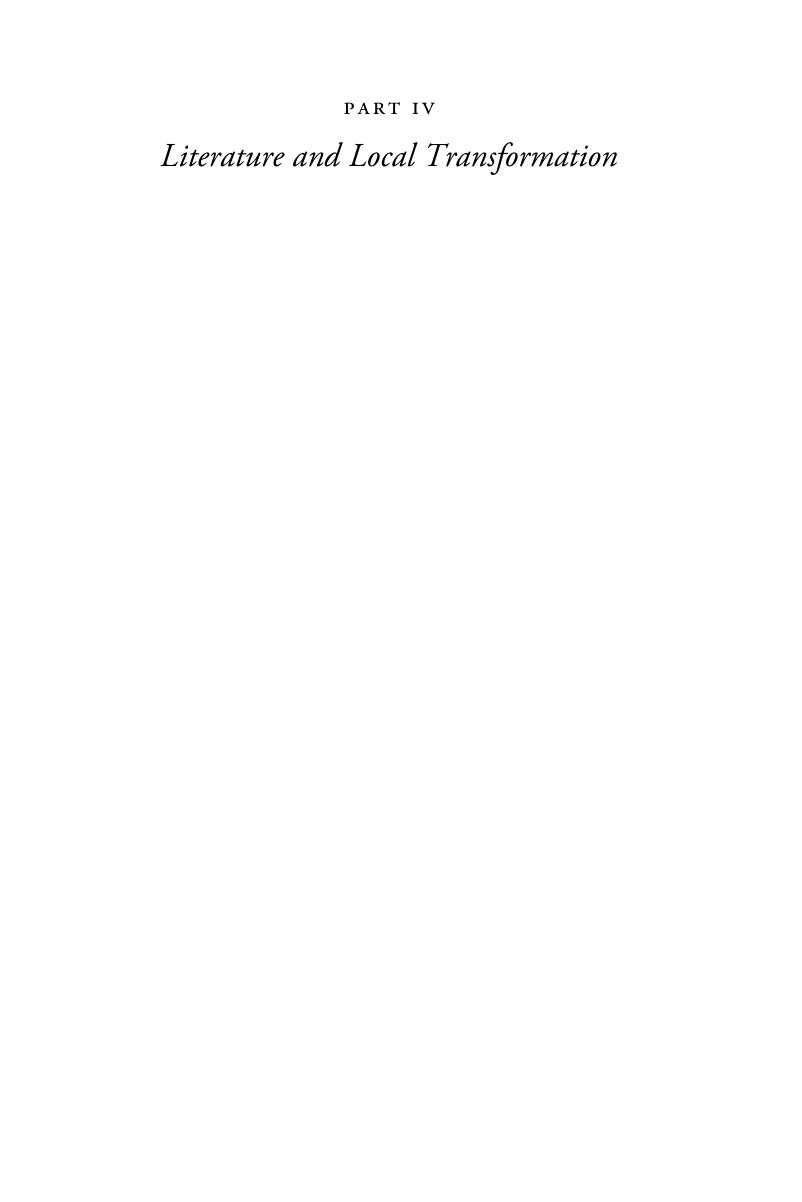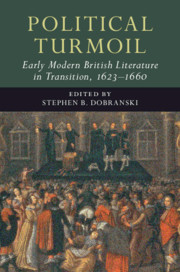Book contents
- Political Turmoil: Early Modern British Literature in Transition, 1623–1660
- Early Modern British Literature in Transition, 1557–1714
- Political Turmoil: Early Modern British Literature in Transition, 1623–1660
- Copyright page
- Dedication
- Contents
- Illustrations
- Contributors
- Abbreviations
- Introduction: Turmoil, Political and Otherwise
- Part I Generic Transitions
- Part II Literature and Ideological Transformation
- Part III Literature and Cultural Transformation
- Part IV Literature and Local Transformation
- Index
- References
Part IV - Literature and Local Transformation
Published online by Cambridge University Press: 31 January 2019
- Political Turmoil: Early Modern British Literature in Transition, 1623–1660
- Early Modern British Literature in Transition, 1557–1714
- Political Turmoil: Early Modern British Literature in Transition, 1623–1660
- Copyright page
- Dedication
- Contents
- Illustrations
- Contributors
- Abbreviations
- Introduction: Turmoil, Political and Otherwise
- Part I Generic Transitions
- Part II Literature and Ideological Transformation
- Part III Literature and Cultural Transformation
- Part IV Literature and Local Transformation
- Index
- References
Summary

- Type
- Chapter
- Information
- Publisher: Cambridge University PressPrint publication year: 2019



